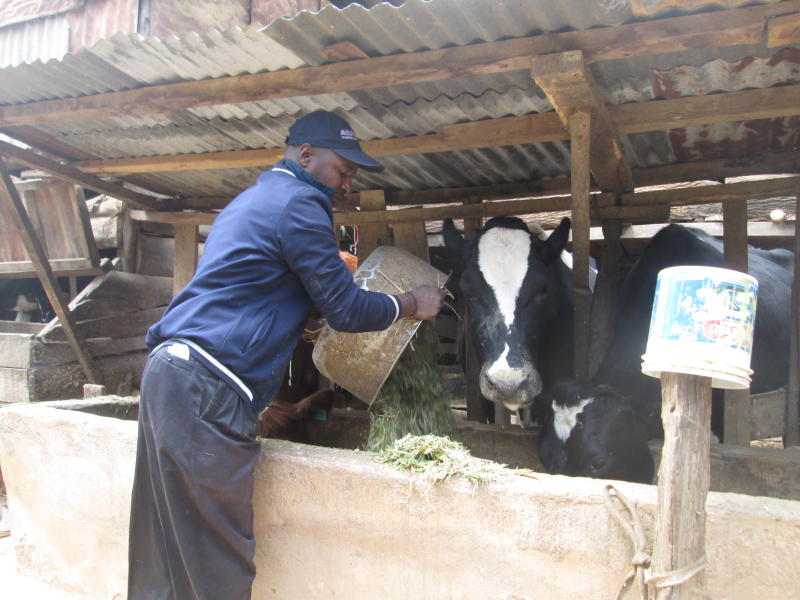×
The Standard e-Paper
Join Thousands Daily

Jimson Kambale has always dreamt of being a dairy farmer, but the challenge was lack of finances. To actualise his dream, he saved up while he was still employed. So impressive is his craft, in 2014 one of his cows emerged the overall winner at the annual Mombasa Agricultural show.
Thanks to his prowess in dairy keeping, his homestead is a beehive of activity as farmers across Taita-Taveta County come to benchmark.